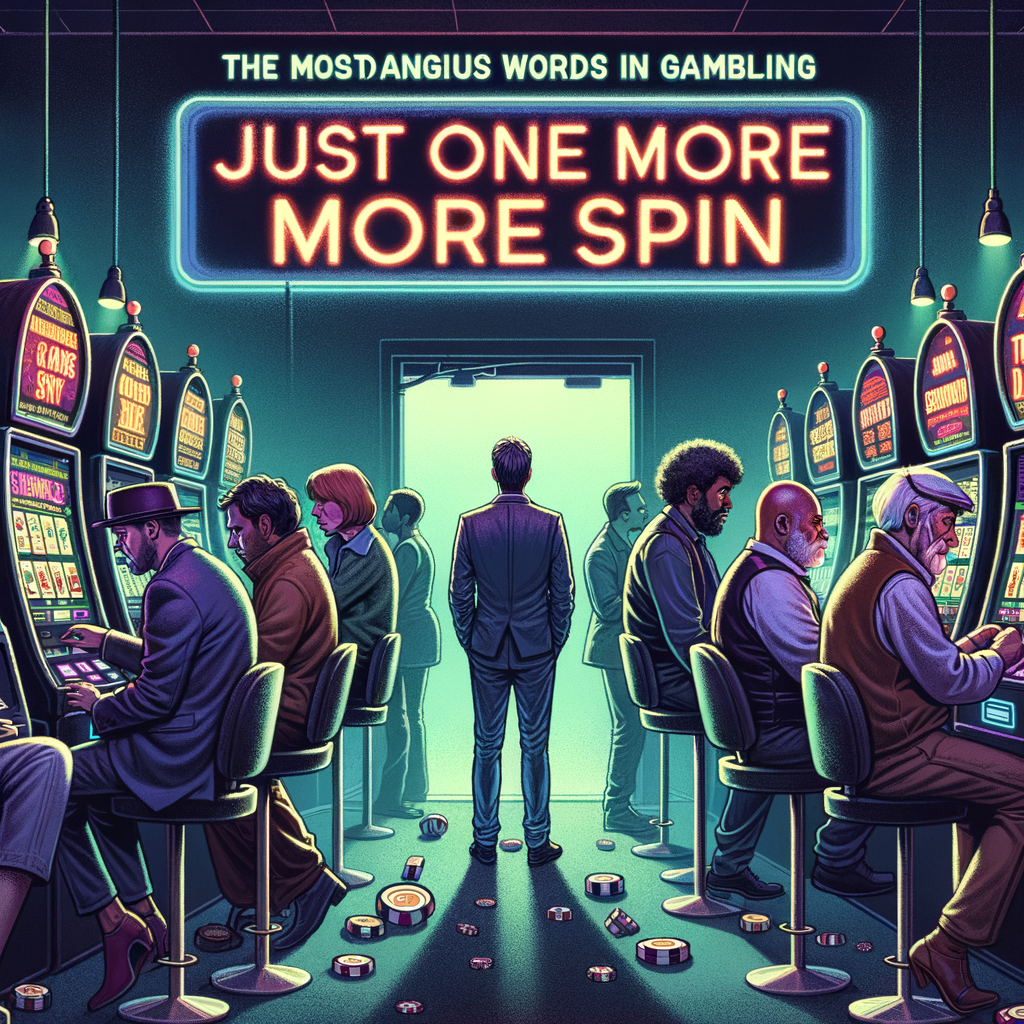Gambling can be a thrilling escape, filled with the excitement of potential wins. However, one phrase often echoes in the minds of gamblers, leading them down a perilous path: “just one more spin.” This phrase captures the psychological allure of gambling that can transform a harmless pastime into an obsession. In this article, we will explore the psychological factors behind this temptation and the inherent risks associated with the urge to continue gambling.
The Psychological Allure of "Just One More Spin" in Gambling
The phrase “just one more spin” encapsulates a powerful psychological phenomenon known as the “sunk cost fallacy.” This concept explains the tendency for individuals to continue investing time or money into a situation based on what they have already lost, rather than evaluating the present or future potential for success. In gambling, every spin of the slot machine or hand of cards carries the weight of previous losses, enticing players to chase after their losses, believing that one more attempt could yield a breakthrough.
Moreover, the near-miss effect is a significant component of this allure. Gamblers often experience a sense of excitement and anticipation when they come close to winning, even if they ultimately lose. This psychological response can create a false sense of hope, leading players to believe that they are on the cusp of a win. The incremental highs of near-misses can create a feedback loop, where the gambler feels encouraged to keep playing, convinced that “just one more spin” will be the one that turns their luck around.
Finally, social dynamics play a role in reinforcing the phrase. Many gamblers participate in groups, sharing their experiences and celebrating wins together. The collective atmosphere can amplify individual desires to keep playing. When others around you are engaged and winning, it becomes easier to justify the decision to take one more spin, as the environment suggests that luck is in the air. This communal reinforcement can further entrap individuals in a cycle of risky behavior, making “just one more spin” feel like a shared adventure rather than a solitary risk.
Table: Psychological Factors Influencing Gambling Behavior
| Psychological Factor | Description | Impact on Gambling |
|---|---|---|
| Sunk Cost Fallacy | Continuing to invest based on previous losses | Encourages persistent gambling despite negative outcomes |
| Near-Miss Effect | Feeling a thrill from almost winning | Increases the desire to keep playing |
| Social Reinforcement | Influence of peers in a gambling environment | Validates and escalates the urge to gamble further |
Understanding the Risks Behind the Temptation to Continue
The risks of giving in to the phrase “just one more spin” extend far beyond financial loss. As players become increasingly engrossed in the cycle of gambling, they may develop a compulsion that can lead to gambling addiction. This addiction has severe consequences, including financial ruin, strained relationships, and deteriorating mental health. The thrill associated with gambling can morph into an uncontrollable urge, resulting in a loss of control that is difficult to overcome.
Furthermore, the financial implications of relentless gambling can be devastating. Many players do not realize how quickly their losses can accumulate with each additional spin. The seemingly innocent decision to play “just one more time” can escalate into significant debt and financial instability. For some, this may lead to desperate measures to recover losses, including borrowing money or engaging in unethical behavior to fund their gambling habits.
Lastly, the impact on mental health cannot be understated. The stress and anxiety associated with the ups and downs of gambling can lead to serious emotional distress. Players may experience feelings of depression, guilt, and isolation as they grapple with the consequences of their actions. The cycle of gambling can create a void that is difficult to fill, leading individuals further down a path of despair. Recognizing the risks associated with “just one more spin” is crucial for anyone involved in gambling, as awareness can serve as a first step toward prevention and recovery.
Q&A Section
Q: Why is "just one more spin" so enticing for gamblers?
A: The phrase is enticing due to psychological factors like the sunk cost fallacy, the near-miss effect, and social reinforcement, which create a compelling urge to continue playing despite previous losses.
Q: What are the signs of gambling addiction?
A: Signs include a persistent need to gamble, neglecting responsibilities, lying about gambling activities, and experiencing anxiety or depression related to gambling behavior.
Q: How can someone resist the urge for “just one more spin”?
A: Setting strict limits on time and money spent on gambling, seeking support from friends or professional help, and recognizing triggers can help individuals resist the temptation.
Q: What are the potential consequences of ignoring gambling addiction?
A: Ignoring gambling addiction can lead to severe financial problems, damaged relationships, and mental health issues such as anxiety and depression.
Q: What resources are available for those struggling with gambling addiction?
A: Numerous resources are available, including support groups like Gamblers Anonymous, mental health professionals specializing in addiction, and hotlines for immediate help.

